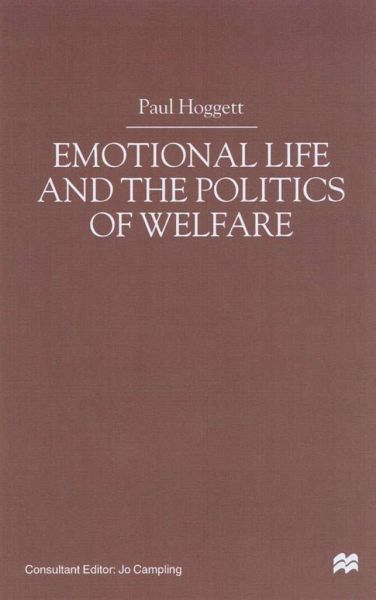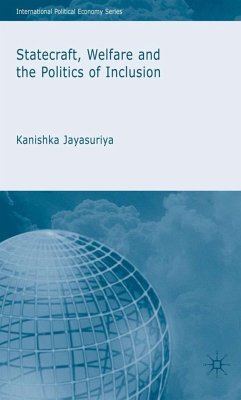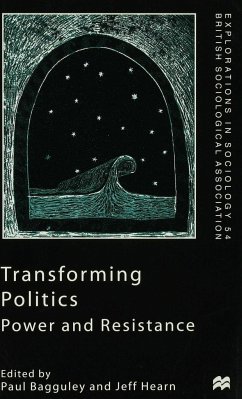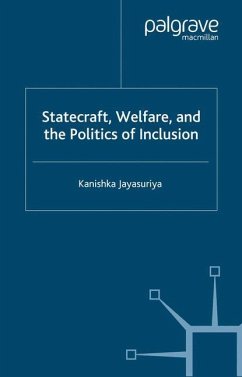
Emotional Life and the Politics of Welfare
Versandkostenfrei!
Versandfertig in 6-10 Tagen
76,99 €
inkl. MwSt.

PAYBACK Punkte
38 °P sammeln!
Social policy and political theory are based upon rationalist models of the human subject. Drawing particularly upon contemporary Kleinian and feminist political theory the author explores the powerful role that emotions such as love, hate and fear play in the development of the human subject. From this base the book then examines a range of contemporary issues such as employment, dependency, care and generosity, conflict and oppression which are relevant to struggles around the welfare state.














